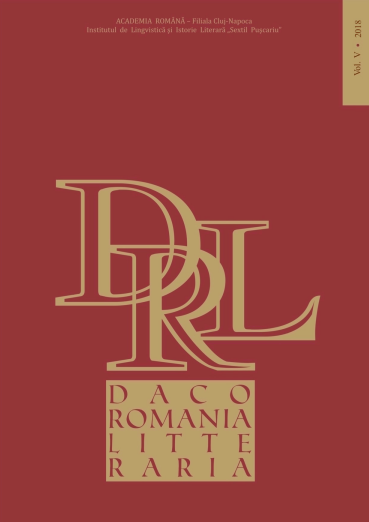ARTICULER LES AFFECTS : FUIR DE JEAN-PHILIPPE TOUSSAINT
JEAN-PHILIPPE TOUSSAINT’S RUNNING AWAY
Author(s): Vesna ElezSubject(s): Language and Literature Studies, Studies of Literature, French Literature, Theory of Literature
Published by: Academia Română, Filiala Cluj-Napoca
Keywords: Jean-Philippe Toussaint; Fuir; Roland Barthes; affects; roman noir;
Summary/Abstract: In his novel Running Away (a part of his “Cycle of Marie”, the other three being Making Love, The Truth about Marie and Naked), Jean-Philippe Toussaint offers an unconventional narrative treatment of the affective dynamics. The narrator-protagonist informs the reader that the novel is about his attempted separation from Marie. He leaves to China. The plot comprises several episodes which are not directly linked to the affects, offering a roman noir pattern of sorts. However, the affective canvas is overwhelming: although hardly articulated, the affects inundate the text by their silent presence. We intend to demonstrate that by using the verbs of movement which create distance between each other (leave, run, move, abandon, disappear, etc.) the narrator underlines Marie’s omnipresence, although she actually appears in the last section of the novel. Her absence translated into her presence articulates the paradoxical nature of the affects which cannot be dominated by a rational decision and which defy the very narrative’s linearity. Following Roland Barthes’ arguments in his essay A Lovers’ Discourse: Fragments, we aim to underline the paradoxical narrative strategy which confirms the predominance of the affects using the imagery of emptiness, void and escape.
Journal: Dacoromania litteraria
- Issue Year: 5/2018
- Issue No: 1
- Page Range: 45-55
- Page Count: 11
- Language: French

